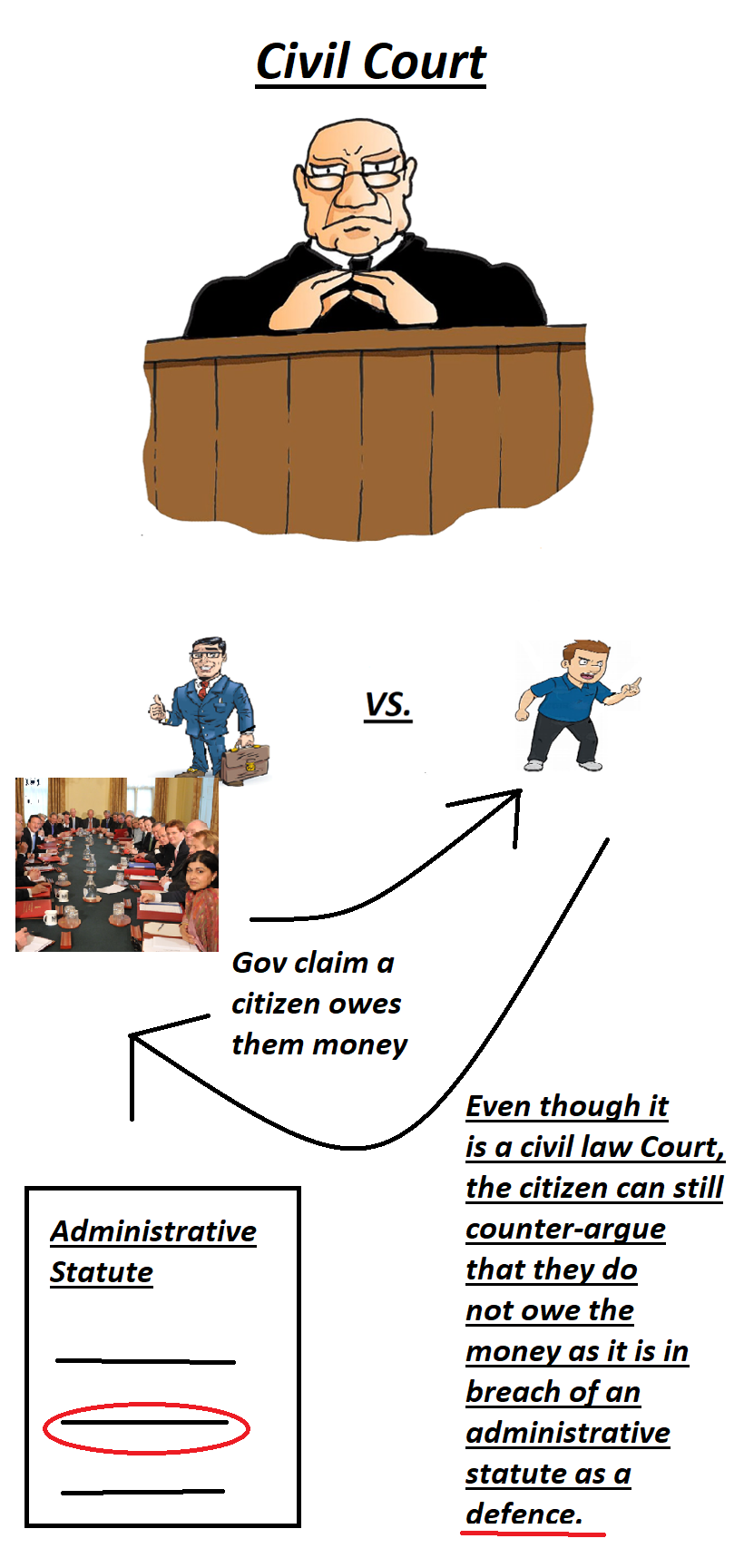Wandsworth London BC v Wander, [1985] AC 461
Citation:Wandsworth London BC v Wander, [1985] AC 461
Rule of thumb:Can you rely on an administrative statute in a civil law Court? You can if you are seeking to provide a reason for why you do not owe the Government money they are seeking from you. This case affirmed that if a private person is sued by a public sector body for money, they can still defend this relying on provisions of statutes which are typically administrative statutes outlining a public body’s public sector duties – if they were the plaintiff raising the case, they could not raise these in the civil Court as a general rule, however, if they are defending as to why they do not owe money, then they can argue that the payment is not owed on the grounds of public policy which the public sector body is breaching with their approach.
Background facts:
The facts of this case were that the local authority increased rents.
Parties argued:
Mr Wander, the defendant, argued that the local authority could not do this due to them breaching an administrative statute in doing so. The local authority sought to have the defence struck out on the basis that it could only be argued in an administrative Court.
Judgment:
The Court upheld the arguments of Wander that he was entitled to rely on this argument in defending his position and the case was sent back for reconsideration. The Court further held that this action taken by Wander fell a long way short of being an abuse of Court procedure.

Ratio-decidendi:
‘It would in my opinion be a very strange use of language to describe the respondent’s behaviour in relation to this litigation as an abuse or misuse by him of the process of the court. He did not select the procedure to be adopted. He is merely seeking to defend proceedings brought against him by the appellants. In so doing he is seeking only to exercise the ordinary right of any individual to defend an action against him on the ground that he is not liable for the whole sum claimed by the plaintiff. Moreover he puts forward his defence as a matter of right, whereas in an application for judicial review, success would require an exercise of the court’s discretion in his favour. Apart from the provisions of Order 53 and section 31 of the Supreme Court Act 1981, he would certainly be entitled to defend the action on the ground that the plaintiff’s claim arises from a resolution which (on his view) is invalid: see for example Cannock Chase District Council v. Kelly [1978] 1 WLR 1, which was decided in July 1977, a few months before Order 53 came into force (as it did in December 1977). I find it impossible to accept that the right to challenge the decision of a local authority in course of defending an action for non-payment can have been swept away by Order 53, which was directed to introducing a procedural reform. As my noble and learned friend Lord Scarman said in Reg. v. Inland Revenue Commissioners, Ex parte Federation of Self Employed and Small Businesses Ltd. [1982] AC 617, 647G ‘The new R.S.C., Ord. 53 is a procedural reform of great importance in the field of public law, but it does not – indeed, cannot – either extend or diminish the substantive law’. (Lord Fraser)
Warning: This is not professional legal advice. This is not professional legal education advice. Please obtain professional guidance before embarking on any legal course of action. This is just an interpretation of a Judgment by persons of legal insight & varying levels of legal specialism, experience & expertise. Please read the Judgment yourself and form your own interpretation of it with professional assistance.

